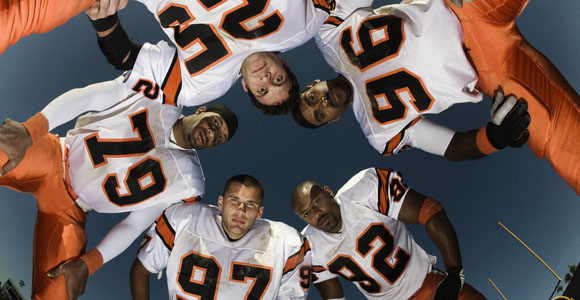Weight loss is a very goal oriented sport. You might not think of it as a sport, but it certainly is. Successful players in the weight loss game know it’s about setting a good strategy, outfitting themselves for play, mentally preparing for the battle and choosing a winning team. It’s remarkable how close a parallel there is between being an athlete and being a weight loss surgery patient.
When you hang around people who have been in the weight loss community for many years, discussions inevitably comes around to not meeting pre-op expectations on weight loss. We all had that magic number set in our pre-op minds on where we wanted to be a year post-op. I had mine going into my first surgeon’s consult. He surprised me by giving me a target that was 25 pounds heavier than my imagined perfect body weight. I now realize that his number heavily factored in his experience and knowledge while my number was more of an emotional wish.
Where do you place the blame when reality falls short of expectations? If you have been grazing and negligent of your bariatric diet, it’s pretty obvious who the prime suspect is. Most of us live in non-bariatric households. It’s easy to point fingers at family members and friends who tempt us in devilish ways to stray… just for tonight, they promise. Then there is your bariatric center’s office. Why didn’t they warn you before your surgery how hard this journey would be? Maybe your surgeon or nutritionist set an unrealistic goal that set you up for failure. Damn them!
9 times out of 10 we are the culprit. We are human and succumb to our weaknesses. You know the excuses… Oh, that cake looks so good. What harm could a few slices of pizza really do? It’s hot outside. I need that extra hour of sleep. I’ll workout tomorrow. It’s just too hard to track my protein intake. I know I am good with it. Those are just a few of my favorite personal excuses.
Build up your weaknesses until they become your strong points.” — Knute Rockne
Knute Rockne was talking college football for sure in this quote, but it transcends sports to all facets of life. Rockne knew the importance of encouraging his players to become very knowledgeable of their weaknesses. Once you understand the root and cause of a weakness, you can turn it into an asset. Knowledge is truly power when it comes to conquering weakness.
That brings me back to the gap between pre-op expectations and today’s reality. You can’t go back and relive your life since surgery. What you can do is put together a winning support team, prepare yourself mentally and outfit yourself for success. It all begins with acknowledging your weaknesses and coming to understand how they impact your weight loss journey. Once you achieve that level of knowledge, you can move forward with new goals and a new outlook on life from this day forward. You will be surprised how much better your expectations and reality match up in your new life.


Pingback: Tom’s Five Favorite Posts of 2011 | Beariatric